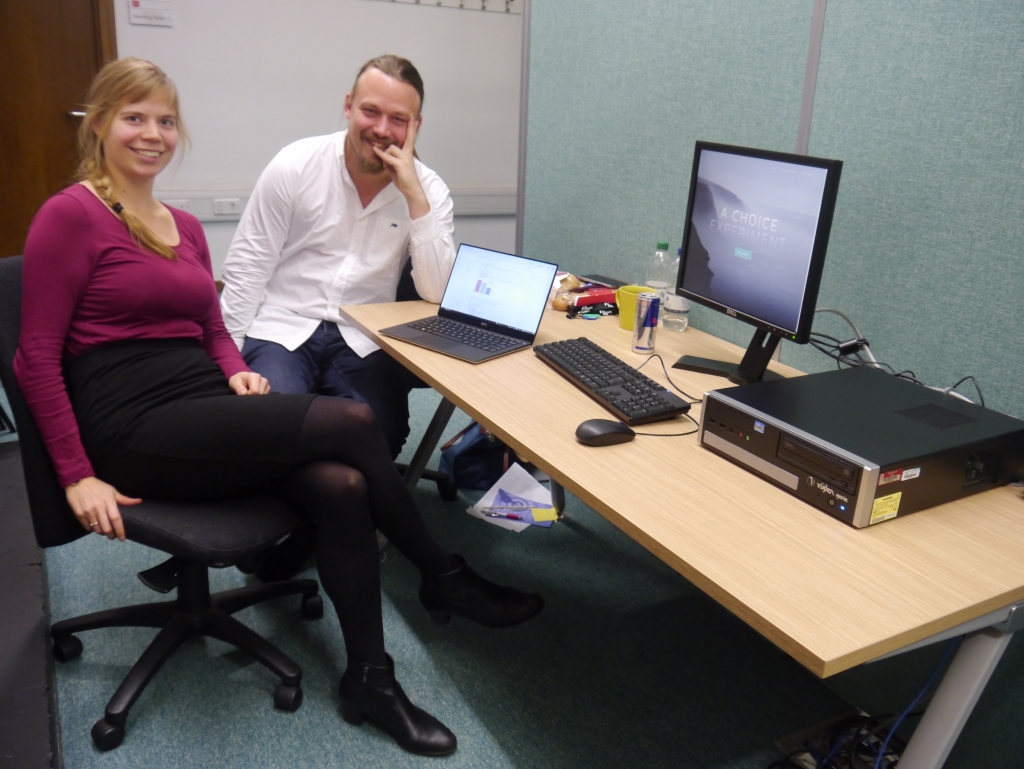Researchers used LSE’s Behavioural Lab for Research and Teaching to look at how cooperation can spread within networks and how strategic decision making can be influenced.
Study participants took part in a series of computer-based games and were presented with different descriptions for the game they played. The participant’s strategies, along with the description of the game given to them, were recorded and analysed to see how varying descriptions influenced strategic choices made by the participants.
The experiment involved three different games. The first introduced a concept highlighting the value of cooperation. The second described the game in neutral terms and the third introduced a concept that highlighted the value of defection.
The participants believed they were playing against other people, when in reality they were up against a computer. The variations in the descriptions were used to see if participants were more or less likely to choose a cooperative strategy.

Findings from the study show how influential words can be on our behaviour. Participants who were exposed to the cooperative descriptions of the game were seen to be more obliging, whereas those who were introduced to the value of defection were much less inclined to cooperate.
We have found a significant difference in the level of cooperation seen among people who have engaged with the cooperation narrative compared to the others. Another interesting finding was that participants who had studied two or more years of economics are less likely to be affected by the narratives of the game. Instead, they behave as people who have been exposed to the defection narrative – which suggests they’ve adopted this narrative as a result of their studies.
The research also provided an insight into cooperation within networks, as these kinds of simulations are usually done on artificial networks. The outlook from here is to investigate to which degree these narratives can play a role in the spreading of cooperative behaviour at scale, in computer simulations using real-life network data.
We conducted our study at the LSE’s Behavioural Research Lab (BRL) and made use of the state-of-the-art facilities on offer. The delivery of our study was supported by Lars Wicke, BRL Manager.
Notes:
- Feature image by Perry Grone on Unsplash.
- The study took place at LSE’s Behavioural Research Lab (BRL).
- The views expressed are those of the authors and not LSE.






